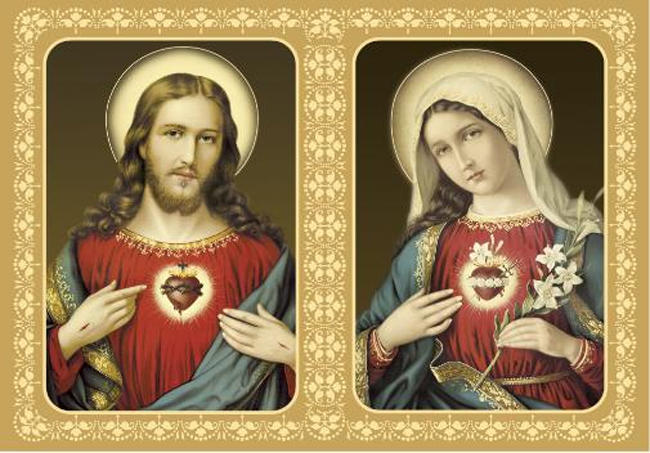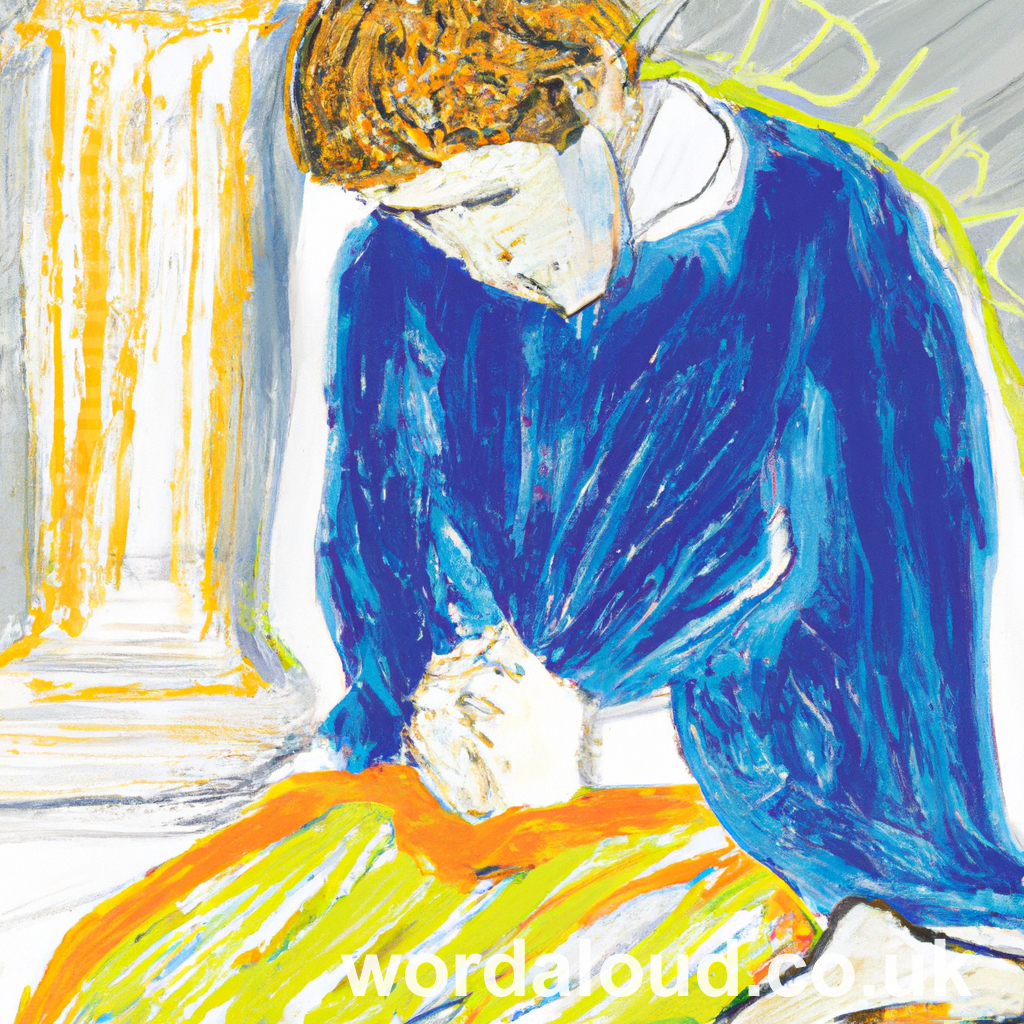Christian Art | Thou Shalt Not Kill | King James Audio Bible KJV | Ten Commandments
The Ten Commandments | The Fifth Commandment | ‘Thou shalt not kill’ | King James Audio Bible
The commandment ‘Thou shalt not kill’ is considered to be one of the most important commandments in the Church. According to the Catechism, ‘human life is sacred because from its beginning it involves the creative action of God and it remains forever in a special relationship with the Creator, who is its sole end. God alone is the Lord of life from its beginning until its end: no one can under any circumstance claim for himself the right directly to destroy an innocent human being.’
The Catholic Church teaches that the commandment ‘Thou shalt not kill’ applies not only to the physical act of taking another person’s life, but also to the attitudes and actions that lead to the taking of life. The Catechism states that ‘the fifth commandment forbids direct and intentional killing as gravely sinful.’ It also prohibits ‘all other crimes against life such as genocide, abortion, euthanasia, and wilful self-destruction’ as well as any kind of violence or hatred directed at one’s neighbour.
Pope Francis has spoken extensively about the importance of respecting human life and the sanctity of life, and how this commandment applies to our lives as Catholics today. In his apostolic exhortation ‘Evangelii Gaudium’ (‘The Joy of the Gospel’), Pope Francis states that ‘the commandment ‘You shall not kill’ has absolute value and applies both to the innocent and to the guilty. The commandment is valid not only for individual actions, but also for the actions of governments and societies. It must be implemented by concrete and effective measures that provide people with the necessary protection and promotion of their lives.’
Pope Francis also emphasized the importance of protecting life at every stage: ‘We Christians and our Holy Church, we want to give a voice to all those who have none, a voice to the poor, to children, to migrants, to the elderly and to all those who are at the margins of society, which is where Jesus himself is.’
Pope Francis also calls for an end to the death penalty, stating that ‘the death penalty is inadmissible because it is an attack on the inviolability and dignity of the person, and he urges for its worldwide abolition.’
It is clear that Pope Francis, along with the Church, places great importance on the commandment ‘Thou shalt not kill’ and sees it as an essential aspect of being a good Christian and a good member of society. He encourages people to respect the sanctity of human life and to protect it at every stage, from conception to natural death. He also advocates for the protection of the vulnerable and marginalized, and calls for an end to the death penalty as well as any actions, attitudes or behaviours that lead to the taking of innocent life.

How Have Christian Writers And Religious Leaders Addressed The Issue Of Abortion?
Christian writers and religious leaders have had a range of perspectives on the issue of abortion.
The vast majority have stated that abortion goes against the commandment ‘Thou shalt not kill’ and the sanctity of human life that is central to Christian beliefs.
In the Catholic Church, abortion is considered to be a grave sin and is considered to be a form of murder – a Catholic self-excommunicates through procuring an abortion. The Catechism states that ‘human life must be respected and protected absolutely from the moment of conception. From the first moment of his existence, a human being must be recognized as having the rights of a person – among which is the inviolable right of every innocent being to life.’ Pope Francis has spoken out against abortion, calling it a ‘horrendous’ and ‘very grave sin.’
Many Protestant Christian denominations believe that abortion is a grave sin. The Southern Baptist Convention, for example, states that ‘Southern Baptists affirm that the unborn child is a person, created in the image of God, and that abortion constitutes the unjust taking of innocent human life.’ Evangelical Christian leaders such as Jerry Falwell, James Dobson, and Franklin Graham have also spoken out against abortion.
Some Christian denominations, such as the United Church of Christ and the Unitarian Universalist Association, have taken more liberal positions on abortion, stating that it should be a personal decision made by a woman in consultation with her conscience, her doctor, and her God. They also often advocate for access to safe and legal abortion services, and respect the desire of pregnant women to choose.
Here are three representative examples of what Christian religious leaders have said about the issue of abortion:
- Pope John Paul II: ‘I repeat once more that the Church can never be in favour of abortion. It is always the taking of innocent human life.’
- Southern Baptist Convention: ‘Southern Baptists affirm that the unborn child is a person, created in the image of God, and that abortion constitutes the unjust taking of innocent human life.’
- Rev. Franklin Graham, an Evangelical Christian leader: ‘The Bible is clear that life begins at conception and taking the life of an unborn child is murder in the eyes of God.’
These quotations represent the view that abortion is considered a grave sin and a form of murder by many religious leaders and Christian writers across different denominations. Pope John Paul II, as the leader of the Catholic Church, the Southern Baptist Convention, which is one of the largest protestant denominations, and Franklin Graham, an influential Evangelical leader, all stated that the sanctity of human life is central to the Christian beliefs, and that taking the life of an unborn child goes against it, which is why it is considered a grave sin.
Christian Perspectives On Warfare And Pacifism
Here are nine quotations from a range of views illustrating Christian perspectives on warfare and pacifism:
- Pope John Paul II: ‘War is always a defeat for humanity.’
- St. Augustine of Hippo: ‘But just wars are distinguished from unjust wars in this way: that just wars are waged in order to put an end to injustice and oppression, whereas unjust wars are waged in order to retain or acquire unjust power.’
- Martin Luther King Jr: ‘The ultimate weakness of violence is that it is a descending spiral begetting the very thing it seeks to destroy…Returning violence for violence multiplies violence, adding deeper darkness to a night already devoid of stars.’
- Pacifist Quaker theologian and author Parker Palmer: ‘It is essential to remember that Christians are called not to be pro-war or anti-war, but pro-peace.’
- Mennonite pastor John Howard Yoder: ‘The New Testament’s most fundamental attitude towards war is rooted in the basic insight that war is incompatible with the life of a disciple of Jesus.’
- Evangelical Christian leader Pat Robertson: ‘When it comes to national security, we cannot be pacifists…We must be prepared to defend ourselves and our nation against those who would do us harm.’
- Mother Teresa: ‘I am against war, any war. War is killing. War is destruction. War is making widows and orphans.’
- Just War theorist and Catholic priest and theologian James Turner Johnson: ‘In the just war tradition, war is not seen as an absolute evil to be avoided at all costs, but rather as an unfortunate and tragic reality that may sometimes be necessary to preserve the peace and protect the innocent.’
- Quaker pastor and writer George Fox: ‘War is not of God, but is of the devil, and all wars have been raised up by him, and have been carried on by his instigations and suggestions.’
These quotations illustrate the range of perspectives on warfare and pacifism within Christianity, with views ranging from total opposition to war and violence, to the belief that certain forms of warfare can be morally justifiable under certain circumstances.
Some religious leaders like Mennonite pastor John Howard Yoder, view it as incompatible with the life of a disciple of Jesus, while others, like ‘just war’ theorist James Turner Johnson, see it as sometimes necessary, but still an evil and to be avoided if possible.

A Christian Has A Right To Defend Himself? A Christian Nation Has A Right To Defend Itself?
Many Christians believe that individuals and nations have a right to defend themselves, in order to protect themselves and others from harm. This belief is based on the idea that self-defence is an important aspect of preserving human life, which is considered sacred in Christianity.
The Catholic Church, for example, recognizes the right of individuals and nations to defend themselves and others against aggression, and recognizes that some forms of warfare can be morally justifiable under certain circumstances. This is known as ‘just war theory’ which states that there are certain conditions that must be met for a war to be considered just, such as the intention to protect innocent lives, the use of proportionate force and the likelihood of success.
This perspective is also reflected in the political and religious teachings of some Protestant denominations, which can adopt a more militaristic stance. Many believe that a nation has the right and responsibility to protect its citizens and its borders, and to defend itself and others against aggression.
However, we may note that there are also many Christians and Christian denominations who are pacifist in nature, they believe that Christians should always turn the other cheek and refrain from violence, and that war can never be justified. They believe that the call of Jesus is to love the enemy, and that Christians should always strive for peace, even in the face of aggression.
How Does The Commandment Relate To The Neglect Of Physical Health?
The commandment ‘Thou shalt not kill’ can be interpreted as a commandment to respect and protect human life in all its forms. In this sense, the neglect of one’s own physical health through poor diet, excessive use of alcohol, and drug-taking can be seen as a violation of this commandment, as it can harm the body and shorten one’s life.
Many Christian leaders and theologians have spoken out about the importance of taking care of one’s physical health. Pope Francis, for example, has emphasized the importance of treating the body with respect and care, stating that ‘our body is not a ‘machine’ or a ‘tool’ that we can use and throw away…It is not something we have, it is something we are.’
Similarly, The Bible also speaks about the importance of taking care of one’s physical health. In 1 Corinthians 6:19-20, the Bible says: ‘Do you not know that your body is a temple of the Holy Spirit, who is in you, whom you have received from God? You are not your own; you were bought at a price. Therefore honour God with your body.’
In this way, neglecting one’s physical health through poor diet, excessive use of alcohol, and drug-taking can be seen as a violation of the commandment to respect and protect human life.
Many Christian leaders and theologians teach that it is important to treat our body with respect and care, and to honour God with our body by taking good care of it.
How Does The Commandment Relate To Our Thoughts And Words About People?
The commandment ‘Thou shalt not kill’ is also interpreted as a commandment to respect and protect human life in all its forms. In this sense, the commandment can also be understood as a commandment to not harm others through our thoughts and words.
Christians are called to love their neighbours as themselves. In Matthew 22:39 Jesus says ‘And a second is like it: You shall love your neighbour as yourself.’ This commandment is closely related to the commandment ‘thou shall not kill’ , in the sense that our thoughts and words can also harm others, and loving our neighbours implies that we should have compassion and respect for others and should avoid any behaviour that may cause harm to them, including through our thoughts and words.
The Bible speaks about the importance of being careful with our words. In James 3:6, it says: ‘The tongue also is a fire, a world of evil among the parts of the body. It corrupts the whole body, sets the whole course of one’s life on fire, and is itself set on fire by hell.’ This passage suggests that the words we use can be very powerful and can cause harm to others if not used carefully.








